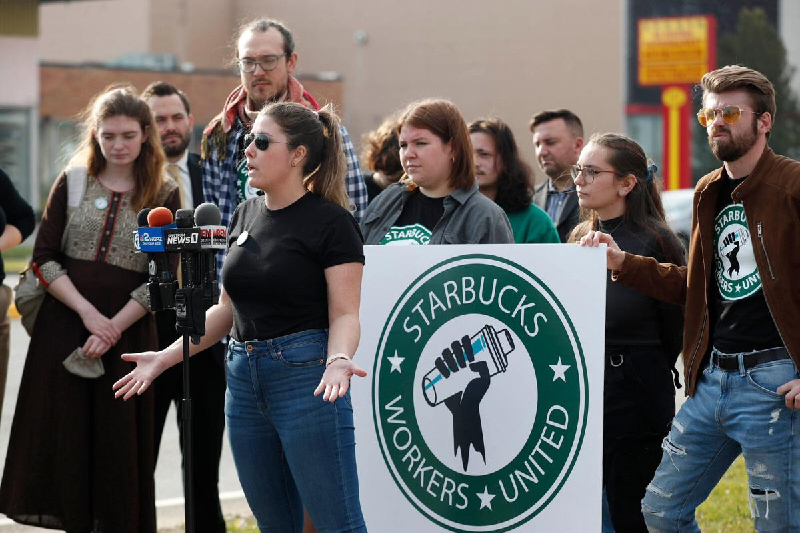

A Seattle Starbucks store manager found themselves involved in a lawful fight when denounced for damaging government labor law by forbidding a barista from conveying union buttons amid paid breaks.
A Seattle Starbucks store manager found themselves involved in a lawful fight when denounced for damaging government labor law by forbidding a barista from conveying union buttons amid paid breaks. The case, which unfurled in the U.S. Court of Appeals for the D.C. Circuit, shed light on the complex crossing point of labor rights and corporate approach inside the coffee giant’s operations.
Legal Audit and Choice
In a closely observed 2-1 decision, the appeals maintained a ruling by the National Labor Relations Board (NLRB), deciding that the manager’s activities constituted an infringement of labor law. The majority’s opinion held that the manager’s order had the potential to hinder laborers from sharing any union-related materials, in spite of the fact that unequivocally focusing on intuition with clients. In any case, Circuit Judge Gregory Katsas disagreed, contending that the manager’s enlightenment was restricted in scope and did not amplify to regions past client intuition.
Starbucks’ Response and Approach Suggestions
Starbucks representative Rachel Wall communicated dissatisfaction with the court’s decision, emphasizing the company’s commitment to maintaining workers’ rights whereas moreover keeping up a conducive work environment. Wall underscored that the case was separated to a single store and emphasized Starbucks’ broader arrangement of supporting supervisors to guarantee that workers can openly organize, relate, and involve in legal exercises. The company’s reaction reflects its continuous endeavors to strike an adjustment between corporate interests and labor rights in a progressively unionized scene.
The Broader Labor Scene
The administration comes within a broader background of labor activism inside Starbucks, with laborers at over 400 stores across the country voting to unionize since late 2021. The unionization campaign has started charges of labor law infringement, counting claims of cross examination and striking support against union supporters. Starbucks Workers United, the union included within the campaign, has initiated dialogs to set up a system for organizing and collective haggling, signaling a potential determination to a few lawful debates. The company’s legitimate challenges to the NLRB’s structure and an impending Supreme Court case underscore the complex and advancing flow of labor relations within the cutting edge corporate scene.
Lawful and Moral Contemplations
The Starbucks case raises critical legitimate and moral contemplations encompassing workers’ rights, corporate obligation, and labor law compliance. Whereas the court’s choice strengthens the security of workers’ rights to lock in in union-related exercises, it moreover highlights the requirement for clarity and consistency in corporate arrangements with respect to worker conduct and expression. As companies explore labor relations in a progressively unionized environment, they must strike a sensitive adjustment between protecting corporate interface and regarding the rights and independence of their workforce.
Future Suggestions and Determination
The determination of the Starbucks case and progressing labor debate inside the company will likely have far-reaching suggestions for both Starbucks and the broader labor development. As the legitimate scene advances and labor activism proceeds to pick up energy, companies must proactively lock in with their workforce, address grievances, and uphold labor guidelines to guarantee a fair and even handed working environment for all. Through discourse, collaboration, and shared regard, companies can successfully explore labor relations and maintain their commitments to both workers and partners.
British Steel has issued the layoff notice of 2,700 employees, giving the steelworkers great relief. With the UK government intervening…
According to Reuters energy major ConocoPhillips says it will cut staff as a major result of its $23 billion purchase…
According to a Bloomberg News report released recently, Intel will make heavy job cuts this week as its new leadership…
Swiss Solar Panel manufacturer Meyer Burger has rolled out a significant initiative of deducting the working hours for about 300…
A significant humanitarian act has been carried out by the government of Costa Rica for the 200 deported migrants from…
Blockades on the borders of the country are to be put in place on April 28 if they do not…
This website uses cookies.
Read More